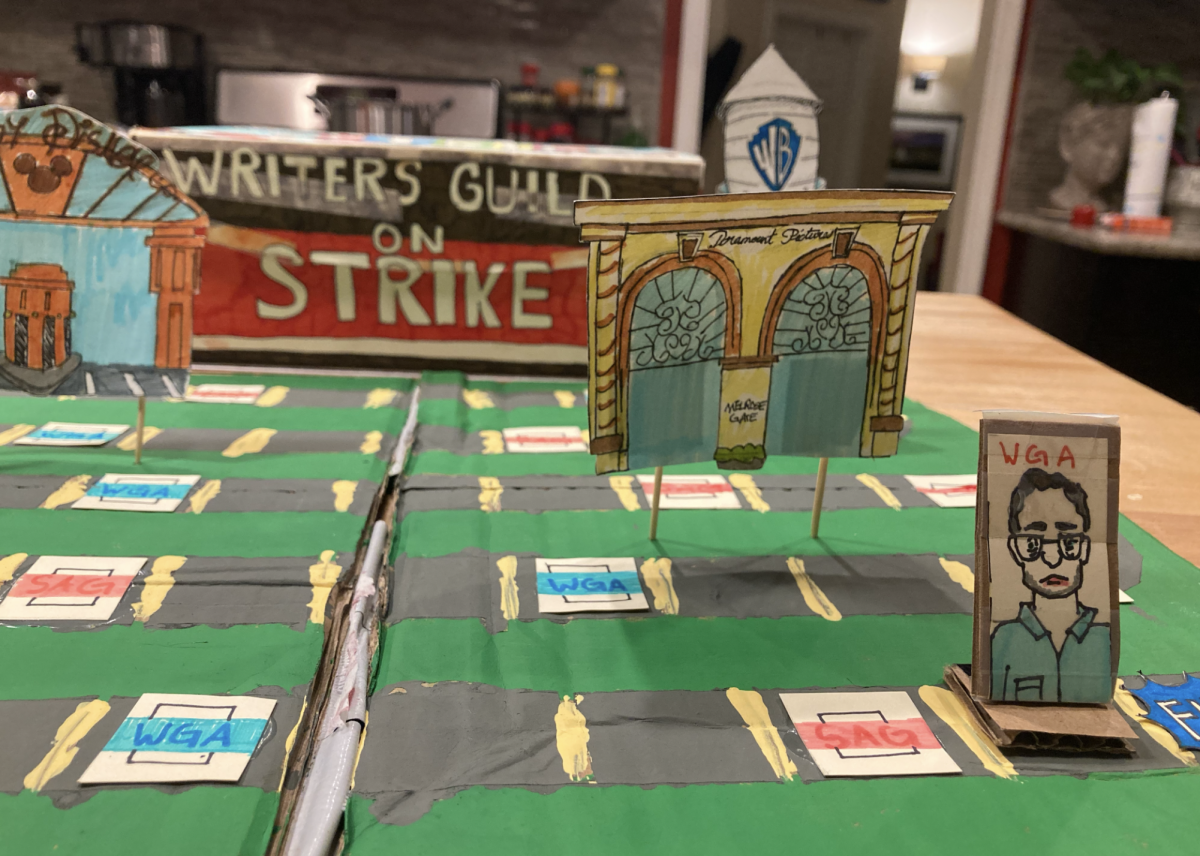The 118-day SAG-AFTRA strike drew to a close on November 9th after the Screen Actors Guild – American Federation of Television and Radio Artists (SAG-AFTRA) and Alliance of Motion Picture and Television Producers (AMPTP) representatives met in Los Angeles and negotiated a tentative agreement that was felt throughout the FSH community.
The strike was triggered by disputes between AMPTP and SAG-AFTRA over residuals, or pay, allotted to writers and the use of Artificial Intelligence in projects. The Writers Guild of America (WGA) organized their own strike a few months prior, which was essential to establishing the SAG-AFTRA strike.
“Now that streaming has become so profitable, the actors and writers are figuring out that it’s not fair, and that where the streaming companies started is far from where they are now. So, I think it is right to demand fair compensation, and I think that it is right to take a stand,” Grace Russo ‘25, whose father is a member of the Director’s Guild of America, said.
As a result of SAG-AFTRA’s settlement with the AMPTP, members of the guild will see that studios are transparent about residuals, AI will not be used in scriptwriting, the minimum pay rate will be increased and pension and health plans will be raised. WGA came to a similar agreement in September.
The strikes had a substantial impact on not just the motion picture and sound recording industries, but Los Angeles County, and perhaps even the country.
According to a Reuters report, the collective strikes cost California’s economy $6 billion. The combined impact saw the loss of jobs of 45,000 motion picture and sound recording industries employees.
On a smaller scale, the strike has had a considerable impact on the FSH community. With its proximity to the WGA West Headquarters, it’s no surprise that staff, faculty and student support was prevalent in several capacities.
Students flocked to Instagram and other social platforms throughout the four-month strike to share their opinions and news about the dispute with the FSH community. Amid the fluctuating situation, students found that social media provided a means to find sign-up opportunities and other information.
Others took to the picket lines to support the cause they believed in.
“There was a sense of camaraderie,” Dale Hancock ‘26 said of Dale’s experience on the picket line. “There’s this sense of ‘We’re in this together’… No one was left out.”
For some, involvement in the strike was personal. Several FSH community members have family members and friends who were unemployed for months.
“He had a movie that was kind of in production, and it got completely shut down,” Lila Hindman ‘26 said of her father, who is a WGA member. “That was really strange to watch because he was gone every day working on this movie, and then all of a sudden he was home for six months. All we had was his writing classes as a source of income.”
The impact of the SAG-AFTRA and WGA strikes goes beyond fiscal losses. The many-month dispute affected FSH community members’ perspectives. Many students believe the strikes have set the precedent for reform-making in other fields, and have shifted their attention to other issues.
“I think the strike is totally valid, and I think what’s happening needs to happen and I think it needs to happen in a lot of other industries,” Hancock said.
Some students maintain that the strikes had another non-quantifiable effect: strengthening the FSH community. While the strikes were no easy feat, they reinforced an unspoken ethos that was felt throughout every protest, social media post, and conversation about the dispute. Cheers echoed through the halls when the strikes were settled.
“I think the strike was really important. Because it was, it was so universal,” Hindman said. “It was just such a big amount of people saying, ‘You’re not going to treat us properly, then we’re just not going to do this’… It showed a lot of unity.”


